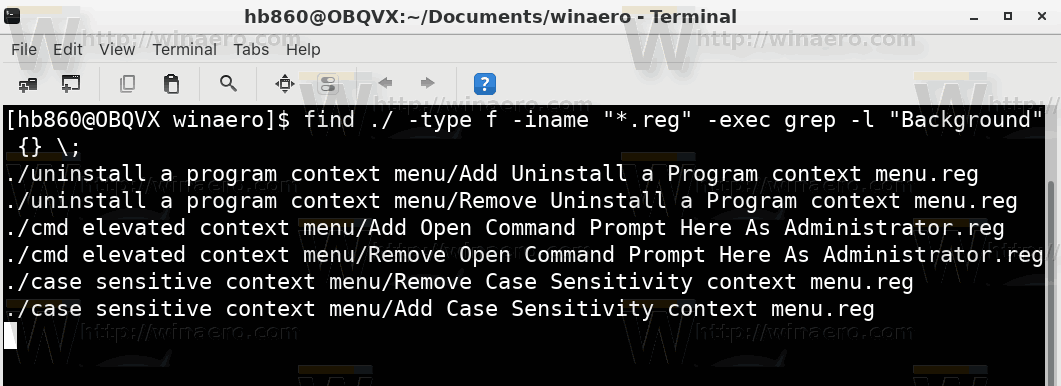

In this tutorial, you have learned to search a string in all files under a directory tree on Linux.

You may also specify multiple file extensions to search grep -R -include="*.php" -include="*.conf" "Hello" /var/www Conclusion grep -R -include="*.php" "Hello" /var/www h However, in Linux (say, Ubuntu) I have found no other way than some piped command involving find, xargs, and grep (an example is at this page: How can I recursively grep through sub-directories). To achieve this use -include option to force grep to search for the specific file only and ignore others. In Windows, if I wanted to find a string across all files in all subdirectories, I would do something like. Make your search more specific, like search a string “” in all files with the extension. Search Pattern Recursively in Specific Extension Files: This will all string in any case like “hello”, “HELLO” or HeLLo” etc. You can also search for strings matching in any case. grep -r -i mystring and I tried it in a test folder with two tiny files but it wouldn't find the string. The above command will search for case sensitive string only. I want to search all files recursively from the directory I am in for a particular string. This will traverse the directory tree under /var/www and print all files including line content containing string “Hello”. grep -R "search-pattern" /path/to/search/dir Search Pattern Recursively in Filesįor example, you want to search a string “Hello” in all files available under /var/grep -R "Hello" /var/www By running find / dir/ print, you can check Linux’s rlist that you are running the.
#Linux search for text in files recursive how to#
Grep command uses following syntax to search pattern Recursively in all files available under specific directory and its sub directories. How To Recursively Search For A File In Linux If you are seeing that list, let the command ls -R be used. You will get come examples of grep command to search any string recursively in the file system. Using grep you can search any string in all files available in the directory hierarchy. Similarly, we can use the same glob to check if all occurrences of “ Linux” in all text files are replaced: (zsh)$ head myDir/**/*.txtHow do I search string recursively in the file system with grep command? Linux grep command is a frequently used command by most of the Linux users. We see that the sed command alone can solve the problem. How to do a quick and simple, recursive search for text using grep. To search recursively means to also traverse all sub-directories. The above command omitted all sub-directories. Therefore, we can solve our problem much simpler with Zsh: (zsh)$ sed -i 's/Linux/& operating system/g' myDir/**/*.txt Keep forgetting how to do this, so here it is. Find all files with a specific string recursively. Lets say you have two folders which are supposed to have the same information each one of them, but dont really know. Written by Guillermo Garron Date: 17:17:00 00:00. Let’s see how to list all text files recursively under the myDir directory with Zsh: (zsh)$ ls -1 myDir/**/*.txt GNU Linux Find Differences Between Folders and Files Recursively Find Differences Between Folders and Files Recursively. Zsh glob supports the double-asterisk (**) glob to match files under the current directory and all its subdirectories. Using the find Command and the xargs Command Text1.1.1: I like Linux operating system.ĥ.2. Now, let’s check if all text files under the directory myDir have been changed: $ head $(find myDir -name "*.txt") In this way, we invoke the sed command only once instead of n times. Therefore, the sed command will look like: $ sed -i '.code.' foundFile1 foundFile2 foundFile3.foundFileN Moreover, it provides an option “ -exec ” is a placeholder that will be filled by all found files. The find command can find files recursively under a given directory.


 0 kommentar(er)
0 kommentar(er)
